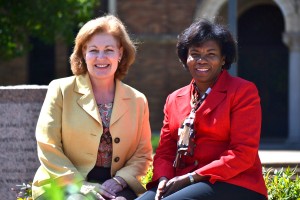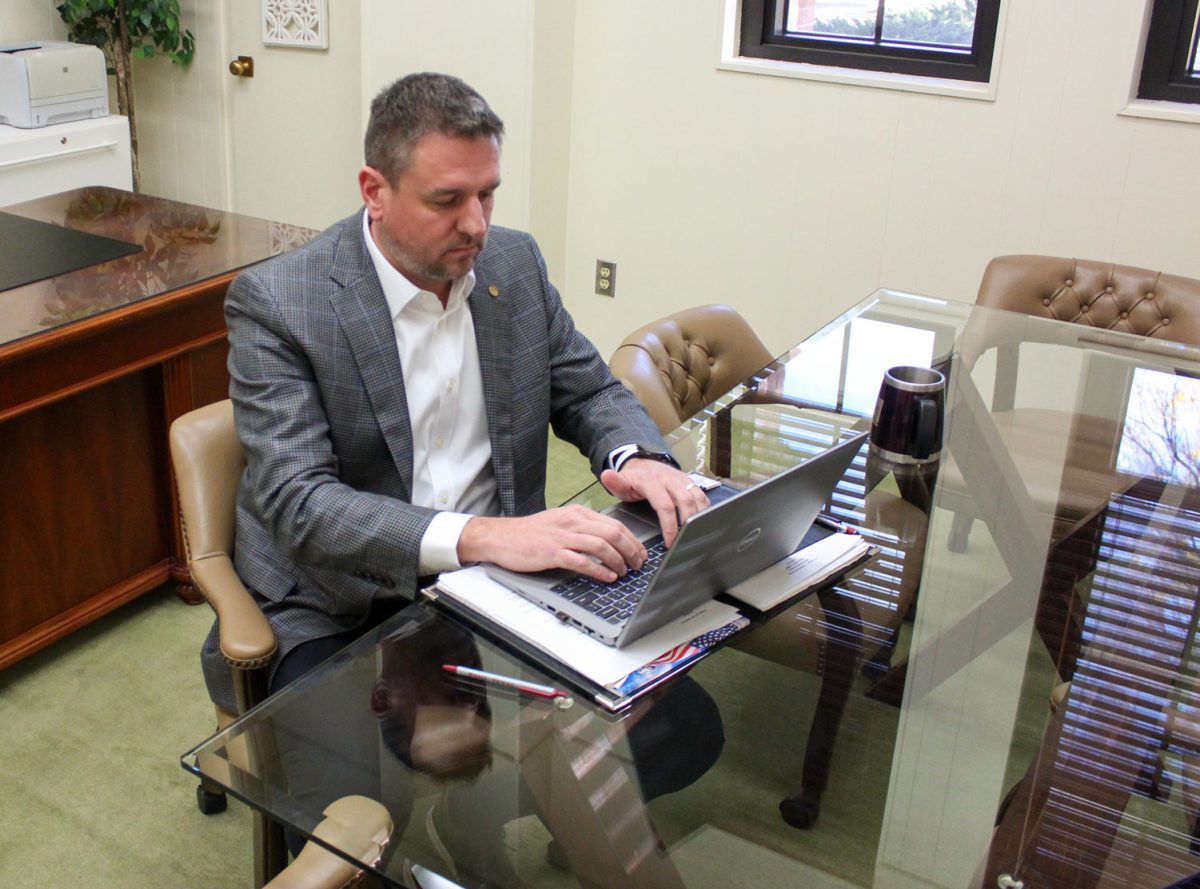
Photo by KIRSTEN CASKEY
Over the summer, Midwestern cracked a perceived “glass ceiling.” For the first time in MSU history, two women have taken top administrative positions. Betty Stewart replaced Alicia White as the provost and vice president of academic affairs after White became the Provost at the University of Texas at Tyler. Marilyn Fowlé replaced Juan Sandoval as vice president of business affairs and finance after Sandoval retired.
Most universities have the stigma of being a “boy’s club,” but Fowlé said over the past few decades women have started progressing through the system.
“My mother always told me to be able to take care of myself and not need to rely on a man,” she said. “She wanted me to be independent. These morals have been instilled in me from young to have a career and be able to take care of myself.”
Stewart said the cycle is changing and women are now prepared to take on leadership roles.
Fowlé applied to the university about eight years ago, but was not selected. When she received the news about the opening of the position once again, she then re-applied and this time was successful at gaining the position.
“I love the location of the university,” she said. “The students are great here, and the size of the school is great for me, because all of my experience has been with schools about this size, the fit was just good. This university has a lot of great pieces that fit my career path and experience level.”
MSU is in great shape, Fowlé said.
“Facilities wise, the campus is very beautiful,” she said. “It has a certain style of architecture that has remained true over the years.”
In regards to the university’s current budget, Fowlé stated the state of Texas has cut down and Midwestern is no different.
“We’re not trying to reflect the cost on our students,” she said. “We’ve been trying to make cuts without increasing the tuition, however the enrollment at Midwestern is not growing either.”
If enrollment can be increased, that will be a next avenue to make up for the state cuts.
“Enrollment drives how much tuition and fees you bring in,” she said. “Enrollment is based on factors such as marketing, recruitment, university standards, etc. It’s like a domino effect.”
Doing more with less is the direction Fowlé is attempting to go.
“Not raising fees exuberantly on the students is something I will definitely be working on the next few years,” Fowlé said.
MSU’s budget is currently around 95 million.
The state only provides about 20 percent of the budget. However, tuition, fees and donations are the two main incomes that help the other 80 percent of the budget. There are also expenditures that come in to play such as salaries and wages, which can take up to 50 percent of the budget.
Fowlé said operating costs can only be trimmed so much.
She hopes the university can reduce the cost of campus labor to increase savings of the budget.
Stewart is no stranger to Midwestern. From 2006 to 2010, Stewart was the Dean of Science and Math. Stewart was contacted by a search firm for the provost and academic affairs position. After discussing the idea with her family, and reminiscing on her four years as dean, Stewart said she decided to accept the offer.
“I had a good four years here and I wanted the opportunity to make a greater impact at this university in terms of leaderships,”
Stewart said. “As Provost I now get to see the college in its entirety.”
Stewart believes getting to know the faculty, the staff, the students, and even the community are essential tools to becoming a good Provost.
“I don’t see this new role as pressure because it is just part of the job of being a Provost,” Stewart said.
Only being on the job for about 34 days, Stewart is still getting into the groove of everything.
However, she said there are some important items on her agenda that needs to be accomplished this year.
Her office is working on the reaffirmation of accreditation which is a national reaccreditation of the college which is done every 10 years. Also, the core curriculum is being revised because the university is going from a 48 hour core curriculum to a 42 hour core curriculum which needs to be in place by 2014.
“Those two items are the main topics on the agenda that need to be accomplished,” Stewart said.












